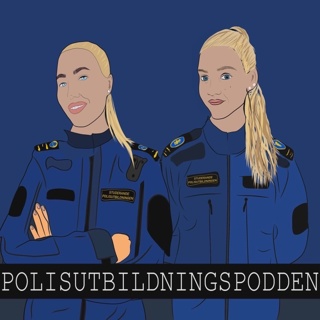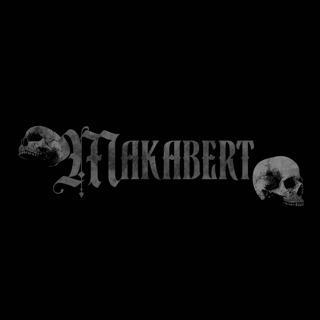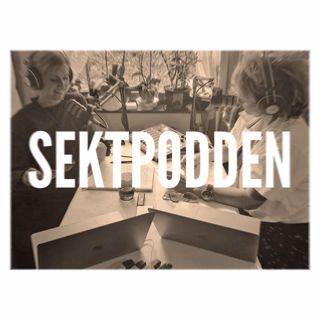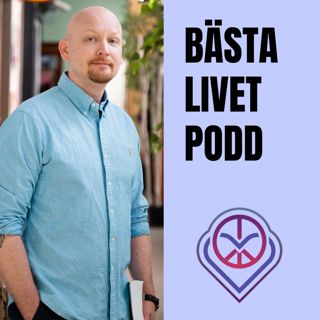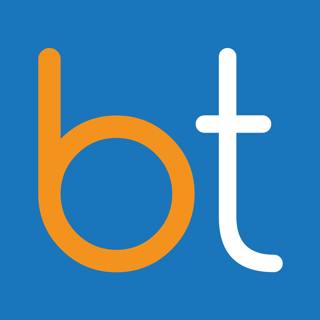
Ep. 123 TIPS University Freshman Year: Referrals and Pre-op Workup with Dr. Emmett Lynskey
We start our TIPS University series with Interventional Radiologist Dr. Emmett Lynskey discussing referral sources and pre-operative workup, including the importance of patient selection and MELD score. --- EARN CME Reflect on how this Podcast applies to your day-to-day and earn AMA PRA Category 1 CMEs: https://earnc.me/GKHtWA --- SHOW NOTES In this episode, Dr. Emmett Lynskey joins Dr. Chris Beck for the first edition of TIPS University to discuss referrals and pre-op for transjugular intrahepatic portosystemic shunts (TIPS). Dr. Lynskey begins by telling us about his fellowship at Georgetown, his current practice, and how he became interested in portal hypertension. We talk through the most common indicators for a TIPS procedure, including refractory ascites, portal vein thrombosis, and acute bleeders. Dr. Lynskey explains how patients are referred to him, and he outlines what factors he considers before determining the eligibility for TIPS. We then discuss how useful cross sectional imaging is, and we break down the Model for End-Stage Liver Disease (MELD) score. Dr. Lynskey shares the components that make up the MELD score as well as the cutoffs and thresholds for a TIPS patient. Next, we review diuretics and emphasize the importance of being honest with patients regarding expectations post-procedure. We explain how to phrase questions when working with cardiologists. Dr. Lynskey goes over what all he can determine from cross-sectional imaging prior to the procedure, and he tells us when he might consider an alternative to TIPS. We discuss which labs should be done the day of the procedure and why Dr. Lynskey gets MELD labs again just before the TIPS. Dr. Lynskey tells us about blood typing, crossmatching, and fibrinogen levels. The episode wraps with Dr. Lynskey explaining the benefits of performing a paracentesis prior to TIPS. --- RESOURCES Edward Jones Financial Advisor Yaphet Tadesse: https://www.edwardjones.com/us-en/financial-advisor/yaphet-tadesse
3 Maj 202143min

Ep. 122 History of the TIPS Procedure: An Interview with Barry Uchida
Interventional Radiologist Peder Horner talks with Barry Uchida about the early days at The Dotter Institute, with stories about working alongside Josef Rösch on developing the first TIPS sets, as well as working with other legends in the field including Charles Dotter, Fred Keller, and Julio Palmaz.
26 Apr 202147min

Ep. 121 OBL's and What You Can Do in Them with Dr. Mike Watts
Interventional Radiologist Dr. Mike Watts talks with us about which procedures are being safely performed in the OBL space, and the importance of patient selection. --- CHECK OUT OUR SPONSORS Medtronic VenaSeal https://www.medtronic.com/impact Accountable Physician Advisors http://www.accountablephysicianadvisors.com/ Accountable Revenue Cycle Solutions https://www.accountablerevcycle.com/ --- EARN CME Reflect on how this Podcast applies to your day-to-day and earn AMA PRA Category 1 CMEs: https://earnc.me/N4Sfrb --- SHOW NOTES In this episode, Dr. Mike Watts joins Dr. Michael Barraza to discuss Office Based Labs (OBLs). We begin by explaining what an OBL is and how OBLs are different from Ambulatory Surgery Centers (ASC’s). Dr. Watts tells us about some of the advantages of working in an OBL, including reimbursement rates, patient access, and scheduling, and we talk about how the general patient experience is different. Next, we give an overview of how to work with referring doctors at nearby hospitals and build relationships with departments outside of interventional radiology, such as oncology and urology. Dr. Watts shares the advantages of being a full-service IR group, and he tells us how he coordinates patient care between the OBL and hospitals when needed. We also discuss how to expand an OBL practice to become a full-service IR group, how to make yourself valuable within an OBL, and how to participate in ongoing clinical studies. We end the episode with Dr. Watts telling us what is on the horizon for OBLs and what he would like to see in the future.
19 Apr 202137min

Ep. 120 Pulmonary Embolism (PE) Interventions and Response Teams with Dr. Eric Secemsky
Interventional Radiologist Sabeen Dhand talks with Interventional Cardiologist Eric Secemsky about building a Pulmonary Embolism (PE) Response Team, and about the various techniques for treatment of PE used in his practice. --- EARN CME Reflect on how this Podcast applies to your day-to-day and earn AMA PRA Category 1 CMEs: https://earnc.me/8gzIHN --- SHOW NOTES In this episode, interventional cardiologist Dr. Eric Secemsky and our host Dr. Sabeen Dhand discuss pulmonary embolization and the coordination of Pulmonary Embolism Response Teams (PERTs). Dr. Secemsky starts by introducing the diagnosis of pulmonary embolisms. He explains the classification of patients into the categories of massive, submassive, and low-risk embolisms, as well as echocardiogram and CT imaging. His workup includes not only checking for clot burden, but also checking for vital sign abnormalities, evidence of right ventricle dysfunction, and neurological deficits. Then, we transition to talking about the structure, workflow, and communication technologies used in pulmonary embolism response teams. Dr. Secemsky describes his experience with building a response team and ensuring its adaptability for a variety of cases. He emphasizes the importance of multidisciplinary care and team members’ accountability for every patient. Finally, we discuss treatment of pulmonary embolism, based on how emergent a case is. Dr. Secemsky describes factors to consider when employing different treatments: clot extraction devices, thrombolytics, and anticoagulants. Additionally, we cover the topics of catheter-directed thrombolysis, mechanical thrombectomy, and surgical embolectomy. --- RESOURCES Interventional Therapies for Acute Pulmonary Embolism: Current Status and Principles for the Development of Novel Evidence: A Scientific Statement From the American Heart Association- https://www.ahajournals.org/doi/full/10.1161/CIR.0000000000000707 AHA guidelines for the classification of massive, submassive, and low-risk pulmonary embolisms. PERT Consortium- https://pertconsortium.org/ Diagnosis, Treatment and Follow Up of Acute Pulmonary Embolism: Consensus Practice from the PERT Consortium- https://www.ncbi.nlm.nih.gov/pmc/articles/PMC6714903/ SUNSET sPE study- https://vivaphysicians.org/news-article?id=88424
12 Apr 202150min

Ep. 119 Intravascular Ultrasound (IVUS) for Peripheral Arterial Work with Dr. Bryan Fisher
Interventional Radiologist Sabeen Dhand talks with Vascular Surgeon Bryan Fisher about the benefits of using Intravascular Ultrasound (IVUS) for endovascular treatment of peripheral arterial disease (PAD), as well as the potential for other emerging imaging modalities such as Optical Coherence Tomography (OCT). --- EARN CME Reflect on how this Podcast applies to your day-to-day and earn AMA PRA Category 1 CMEs: https://earnc.me/V3Kshz
5 Apr 202139min

Ep. 118 Treating Acute Limb Ischemia with Dr. Donald Garbett
Interventional Radiologist Dr. Donald Garbett talks with Dr. Michael Barraza about how he approaches acute limb ischemia, including different endovascular techniques for removing acute arterial clot. --- SHOW NOTES In this episode, Dr. Donald Garbett joins Dr. Michael Barraza to discuss treating acute limb ischemia. We explain when to take a hospital patient to the OR instead of angio, and Dr. Garbett tells us why he prefers establishing severity of the limb ischemia using the Rutherford classification. We discuss the circumstances of needing to have an immediate procedure, and what challenges may occur in these patients. We discuss the beginning of treating acute limb ischemia, including getting access, initial angions, and when to get an ACT. We review how to get femoral access, and we explain some cases where a different type of access is needed. We discuss which sheath size to use for diagnostics and when lysing overnight. Dr. Garbett tells us when he will lyse while treating acute limb ischemia and why he treats the underlying issue first. We review the different kinds of grafts, and we discuss what guides the approach to re-vascularizing a graft. We talk through some challenging situations that can occur when working on a graft and the dangers of the lipstick effect. We discuss how to use balloons to treat an underlying stenosis and how to deal with an unexpected intraprocedural clot. We discuss follow-up care and working with vascular surgery to coordinate care.
29 Mars 202148min

Ep. 117 Successful (and Quick!) Declots for AV Access with Dr. Neghae Mawla
Interventional Radiologist Christopher Beck talks with Interventional Nephrologist Neghae Mawla about how to perform successful Declot procedures for AV fistulae and grafts, including tips and tricks to make this procedure safe and efficient. --- SHOW NOTES In this episode, Dr. Neghae Mawla joins Dr. Christopher Beck and Dr. Aaron Fritts to discuss declots for AV access. We discuss what to include in a work up for a declot and how to assess the size of an aneurysm. Dr. Mawla tells us about the cases where he would not perform a declot, and he explains why he might choose to place catheter and dialyze first. We discuss how to set up the room and how to prepare for the declot procedure. Dr. Mawla shares the reasons why he does not use an IV or ultrasound in pre-op. We explain the differences between using balloon maceration vs rotational thrombectomy device for treating outflow clot. We also touch on the back bleeding technique for declots. We review the up-down technique, how to use ultrasound to your advantage, and how to avoid overlapping sheaths. We discuss clot burden and why declot procedure length may vary. We explain some different techniques for using multiple sheaths at a time, and Dr. Mawla tells us about troubleshooting during a recalcitrant stenosis. We discuss how to decide when to stent lesions and what follow-up care looks like. Dr. Beck and Dr. Fritts share some of their favorite things they have learned from Dr. Mawla about declots.
22 Mars 20211h 4min

Ep. 116 Evaluation & Management (E&M) Coding 101 with Dr. Ryan Trojan
Dr. Ryan Trojan gives us a 101 on Evaluation and Management (E/M) Coding, including tips and tricks for capturing inpatient notes and practice building, as well as the updates for success in 2021. --- SHOW NOTES In this episode, Dr. Ryan Trojan joins Dr. Christopher Beck to discuss Evaluation and Management (E&M) coding in IR. We discuss what a practice that uses E&M looks like and the pros of integrating E&M into a practice while IR becomes more clinical. Dr. Trojan explains why he thinks relative value units (RVUs) are worth the bit of extra time. We clear up some of the misinformation about E&M, and we discuss global billing periods. We discuss templates, Epic, and some important details about Modifier-25 for E&M. We explain medical decision making in terms of problem point, data points, and risk. We discuss the four levels of complexity and the subsets of risk. We talk through documenting history and why it is important to use straightforward language. We discuss the most typical codes used in E&M and which codes to know for specific scenarios such as physical exams, consults, and admission. Dr. Trojan tells us some of the updates to E&M in 2021 for outpatient care. We talk about how E&M is useful when building relationships with referring doctors. --- RESOURCES Dr. Trojan’s Youtube Video https://tinyurl.com/b5pvbcer Dr. Trojan’s Templates Progress Notes: https://tinyurl.com/2uzm6hua Beck Outpatient Consultation: https://tinyurl.com/uaukf7vc Beck Inpatient Consult Note: https://tinyurl.com/a7fupr67 Resident Time Phrases: https://tinyurl.com/5uvxattn Inpatient Consult: https://tinyurl.com/2vebu7rz SIR Toolkit https://tinyurl.com/3ctz27a8 E&M Coding Education https://emuniversity.com/ Financial Advising https://www.edwardjones.com/us-en/financial-advisor/yaphet-tadesse
19 Mars 20211h 5min













